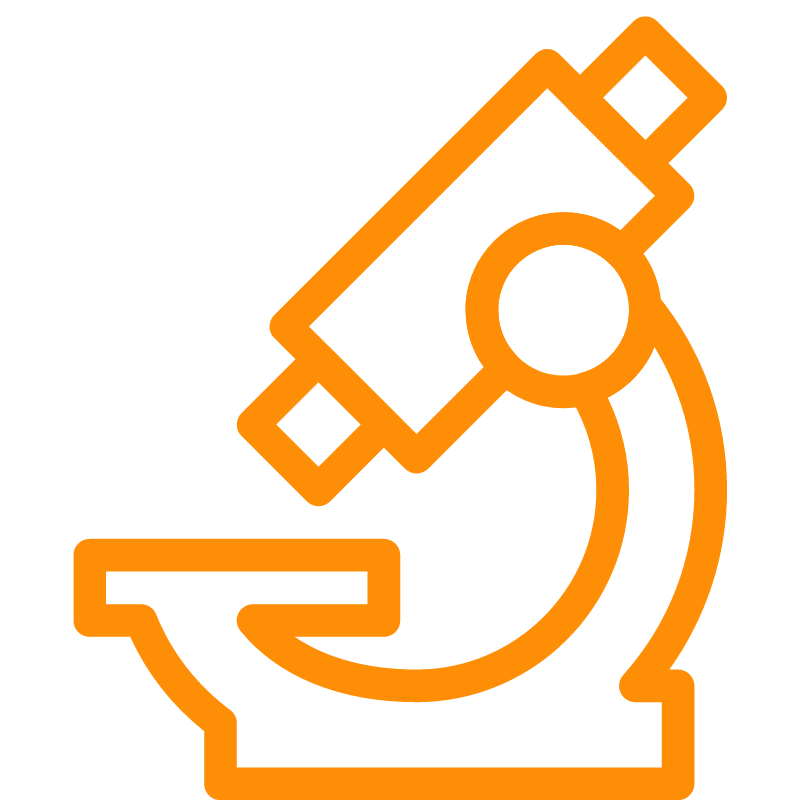| |
1 P.M. SLOT
|
 |
Differentiation and Increased Equity Through Self-Paced Learning
Allowing students to work at their own pace within the framework of a highly structured classroom leads to true differentiation and increases equity. The many pros, and few cons, to this classroom practice will be discussed, as well as practical techniques for implementation.
Presenter:
Heather Mallory, Instructor of Biology, North Carolina School of Science and Mathematics
|
 |
Computational Thinking and the Arts in a STEM Environment
In an educational landscape that increasingly prioritizes STEM concepts and curricula, computational thinking is not only important in the STEM classroom, but is also a staple of the pedagogical and performance mindset of musicians, music educators and all arts education. In this session, presenters will clearly define computational thinking, discuss merits and interdisciplinary applications of the concept, and explain the value of computational thinking in the arts for overall student success and curriculum development. This session will also provide STEM educators an important interdisciplinary window into the arts classroom and pedagogical values and priorities in the arts.
Presenters:
Scott Laird, Fine Arts Chair, North Carolina School of Science and Math
Robert Gotwals, Instructor of Chemistry, North Carolina School of Science and Math
|
 |
Drowning in Data? Institutional Research is Your Life Preserver!
Every school has loads of data, but are you using it effectively? Move beyond accreditation and compliance reporting to make your data a campus-wide resource for decision-making. Based on our experiences launching our own Office of Institutional Research, we will share:
•Why and how we created the Office of Institutional Research
•How we collect, verify, and standardize data from disconnected sources
•How we analyze, visualize, and report on data for school leadership
•Our process for identifying, prioritizing, and managing projects
•Software options and how to select what works for you
•Examples of our projects, such as real-time data dashboards
Presenter:
Pam Altman, Institutional Research Analyst, South Carolina Governor’s School for Science & Mathematics
|
 |
Making it Meaningful: Engaging Students in Authentic Service Opportunities
Students engaged in meaningful service opportunities learn the importance of making positive contributions to the world around them. By combining curriculum-driven service learning with additional community service opportunities, students gain a deeper understanding of their responsibility as scientists and engineers. In this workshop, participants will learn how Mass Academy integrates a commitment to service into its school culture, resulting in nearly all students exceeding the minimum service requirements. Implementation strategies, sources of funding, and engaging with community partners will be explored. Participants will also have the opportunity to brainstorm additional strategies to take back to their schools.
Presenter:
Anne Ludes, Director, Mass Academy of Math and Science
|
 |
Using LetServe to Improve Service Learning Programs
LetServe is a Service Learning program designed to facilitate student engagement, responsibility, and reflection with a team always available to support student service learning journeys. LetServe’s program provides web and mobile access, IT experts and service learning/non-profit professionals to promote student responsibility, leadership, and equity.
At NCSSM, student leaders and staff partner with LetServe to engage students in community service, learning, and reflection. Using customized dashboards, students research and find local volunteer opportunities and log and track service hours; all while making community engagement simple and equitable for students, and reducing the paperwork and administration burden for administrators.
Presenters:
Sue Anne Lewis, Service Learning Coordinator, North Carolina School of Science and Mathematics
Christine Cotton, LetServe Founder & Service Learning Consultant, LetServe
|
 |
It Depends – Qualitative Data in Research
Quantifiable data is a blessing for many teachers. The snapshots lend themselves to clear comparisons that support declarative, authoritative, and defensible statements. The narratives behind those numbers, however, often weave a complex web comprised of qualitative data points with no clear answers that generate more questions. Within the student research experience, qualitative studies are often discouraged, due their inherent complexities and open ended nature. This session will discuss and present pragmatic and immediately applicable strategies to address this issue, and take it from lofty talking point to concrete action plan.
Presenters:
Josh Headley, AP Capstone Coordinator, Baltimore Polytechnic Institute
|
 |
Supporting Teachers and Chemical Technical Professionals
This session will share programs and initiatives of the American Chemical Society that provide support for K–12 teachers of chemistry and students studying to become chemical technical professionals.
Presenter:
Jenn Fees, Education Resource Manager, ACS |
 |
Using Toys for Home-Based Physics Lab Work
Schools were closed down; teachers had to reinvent their strategies. Given the availability of virtual technology, teachers shifted to online classes, modules and simulations. These new adjustments reasonably addressed needs. Physics teachers, however, had to provide students with opportunities lab experiments at home. To address this problem, we physics teachers identified toys to serve as alternatives to standard lab apparatus. Toys based on physics principles can demonstrate physics concepts. Modified toys were sent to students to let them work on their own. Results, quizzes, and feedback show that toys are well-appreciated and are comparable to standard lab apparatus.
Presenter:
Anna Carmela B. Bonifacio, Special Science Teacher V, Philippine Science High School- Main Campus
|
| |
|
| |
2 P.M. SLOT
|
 |
The Flipped Classroom and Neurodivergent Learners
How much do you know about the flipped classroom? How much do you know about working with neurodivergent learners? Do you know how the flipped classroom can help meet the needs of all your students, across all of the spectrums, all at the same time?
Presenter:
Leslie McFadden, Math Teacher, Academies of Loudoun, Academy of Engineering and Technology
|
 |
Sustainable Assessment in STEM Schools: Bridging the Gap Between Expectations and Reality
This lecture will present how the sustainable assessment and feedback principles of Nicol and McFairlane-Dick (2005) were successfully implemented in the English classes at the high school level in a premier STEM school in the Philippines and how these applications resulted in more flexible, empowering, and meaningful learning experiences for the students. The benefits of dynamic discussion on quality work, negotiated assessment, dialogic and high-quality feedback, and more informed pedagogical decisions based on assessment results will also be shared. The interactive discussions will also invite the audience to reflect on their assessment practices and share their experiences with fellow educators.
Presenter:
Kornellie Raquitico, Special Science Teacher V, Philippine Science High School-Main Campus
|
 |
Journey Through 9th-Grade Transition – A Guided Discussion About Near-Peer Mentoring
Academies of Loudoun School Counseling and Academy Director will share our school’s journey in developing a novel near-peer mentor program. Our intention with this program is to support 9th grade students as they transition to a rigorous, public, day school STEM environment. Our goal is to implement a sustainable program, designed to enhance academic performance, strengthen student community, and support student retention. We will share our nascent program development process, screening tools and training materials. The session will include an open facilitated discussion so that we may learn from other school’s experiences with peer mentorship.
Presenters:
Amy Burgess, Director of School Counseling, Academies of Loudoun
Jennifer Chang, Academy Director, Academies of Loudoun
|
 |
Models Reveal Mathematical Gems with Netlogo
Biology provides rich real-world contexts for math students to model. However, real-world biological data can be difficult to access and collect in a classroom setting. Netlogo is an free, easy-to-use modeling environment that allows biological experiments to be run in-silico.
We present some classroom-ready Netlogo models for use in high school mathematics classrooms. These models can be used for explorations of exponential growth, foundations of probability, differential equations, and more.
Presenter:
Veronica Vazquez, Mathematics Instructor, North Carolina School of Science and Math
|
 |
Green Schools: Promoting a Culture of Environmental Education at the School, District, & State Level
This session will take a deep dive into how William S. Schmidt Outdoor Education Center and Eleanor Roosevelt High School collaborate in empowering youth in taking action in reducing waste, encouraging sustainability and fostering environmental literacy while working towards Maryland Green School Certification. Strategies will be shared to start student-driven green practices in the high school setting.
Presenters:
David Eisenberg, Engineering Teacher, Eleanor Roosevelt High School / Prince George’s County Public Schools / Maryland
James Roberson, Instructional Specialist for Environmental Literacy, Prince George’s County Public Schools
|
 |
GSSM’s Hydroponic Research Lab Journey
This presentation shares GSSM’s journey to bring a hydroponic research lab to campus from grassroots ideation by our organization to current implementation. GSSM’s Hydroponic Research Lab is an upcycled container that uses automation and hydroponics to grow 8,000 plants simultaneously. We will explore how our lab provides an excellent opportunity for students to explore innovations in controlled environment agriculture while learning about botany, engineering, chemistry, programming, in an interdisciplinary context. The relevance of this lab to South Carolina’s past, present, and future will enable it to be a cornerstone in collaboration efforts between GSSM, universities, private industry, and the community.
Presenters:
Matt Myers, Hydroponic Research Lab Manager, South Carolina Governor’s School for Science & Mathematics
Joshua Witten, Director of Research & Inquiry, South Carolina Governor’s School for Science & Mathematics
Ryan Masters, System Programmer, South Carolina Governor’s School for Science & Mathematics
|
 |
Making Senior Year Relevant with STEM: College Advisement, Research, Internship, Leadership, & Specialized Electives
Is an outbreak of senioritis always on the horizon? This session will share strategies for making senior year relevant while expanding student capacity in STEM through advisement, capstone, leadership, and curriculum programs. Participants will leave with a framework for senior engagement and a plan for applying strategies at their school.
Electives, internship opportunities, and advisement are used to keep seniors connected while focusing on personal career goals. Senior specialized electives, including Organic Chemistry and History of Math, will be presented. We will also review the internship and research capstones including the advisement process to help students select their path.
Presenter:
Amanda Baskett, Director, Rockdale Magnet School for Science and Technology
|
| |
|
| |
|
| |
3:30 P.M. SLOT: DEEP DIVES
Please note Deep Dives are 90 minutes long.
|
 |
90-MINUTE DEEP DIVE 3:30 – 5 P.M.
Inspire the Next Generation of Cloud Builders and Technology Innovators
Join Amazon Web Services (AWS) to demystify cloud computing and ready yourselves (and your students) for the next generation of digital literacy! Secondary educators and leaders have a pivotal role in inspiring students to consider careers in technology and to persist in STEM pathways.
Join this session for a sneak peek into cloud learning and the new age of digital literacy! Are we on the right track to inspire your students? We need your feedback to validate that we are doing the right work to engage your students in ready-to-teach, real-world cloud learning. This session will give you a “behind the scenes” look at real applications for cloud computing and STEM careers.
All content, resources, and platforms are free for teachers, schools, and students. Can’t make the session? Don’t want to wait? Check out the young learner content on AWS Educate today!
Presenters:
Deidre Holmberg, Global Lead – AWS Spark
Rachel Seys, Global STEM Initiatives PM
|
 |
90-MINUTE DEEP DIVE 3:30 – 5 P.M.
The Black STEM Teacher Pipeline: Critical Reflection and Liberatory Action
This session investigates the problems, policies, and practices that disrupt the Black STEM teacher pipeline. Consideration is given to the historical context and the role of anti-Blackness as participants are challenged with critical reflection and liberatory action to remove illusions of hierarchy that privileges those with access to STEM. Participants will learn how to use Dr. Flake’s conceptual framework as a tool to explore the solutions and next steps to advancing the Black STEM teacher pipeline. Participants will leave with actionable next steps and ways to deconstruct the past and reimagine the future of STEM. During this session, participants will spend time in critical reflection and planning for liberatory action that supports multidimensional cultural identity, identity-aligned communities, and ownership of agency.
Presenter:
Dr. Sherita Flake, Senior Professorial Lecturer – Urban Teachers MAT Program Director, American University
|
| |
|
| |
5 P.M. SLOT
|
 |
Beyond Competitions: An Integrated Approach to Robotics as an Engineering and Computer Science Teaching Platform
The demand for competitive robotics programs in high schools has been on the rise, but supporting these programs can be challenging if they fall outside of the school’s curricular mission. However, interest in robotics can drive student engagement with a broader curriculum that teaches engineering and computer science with hardware and software, allowing students to learn technology skills in an authentic, real-world STEM environment.
Presenters:
Joseph LoBuglio, Dean of Engineering and Computer Science, North Carolina School of Science and Mathematics
Marshall Massengill, Robotics Mentor, North Carolina School of Science and Mathematics
|
 |
Rethink School Sports, PE, PBL, Esports and Afterschool Clubs!
HADO crosses the boundary between sports and gaming and directly addresses the problems of both. Leveraging the benefits of physical sport and the unique levelling advantages of esports with the appeal of gaming, HADO brings the young and the young at heart together in real-life physical engagement in a unique way. HADO doesn’t segregate players by size, skill and strength. It’s appealing to educators and parents, it’s physically active, it employs immersive AR technology, it’s designed to build community, and it offers up a unique project-based-learning experience opportunity that will set your school or program apart. Come to this session to play a game of HADO and learn how to implement it at your school.
Presenter:
Bill Albert CEO & Founder, STEMfinity
|
 |
Putting Transformative SEL to Work!
Over the last two years, Wake STEM has implemented innovative practices that utilize the CASEL framework to close gaps in educational opportunities and support all students transitioning from high school into college.
Wake STEM will present its best practices for implementing key transformative SEL in STEM project-based learning. We will share our results and various processes, procedures, and tools utilized throughout the years to implement strategies to build an equitable learning environment. These best practices focus on teaching and mentoring students to utilize strategies for identity (self-awareness), agency (self-management), belonging (social awareness), collaborative problem-solving (relationships), and curiosity (responsible decision-making).
Presenters:
Sophia Overdiep, AP Instruction, Wake STEM Early College High School
Evelyn Baldwin, Science Teacher/PBL Coach, Wake STEM Early College High School
|
 |
Actu-What?
Do you have students who love to solve puzzles and complex numerical problems? Do they want to use their math superpower to make a positive impact in the world and wonder what they can do beyond teaching, engineering, or computer science? Actuarial science is a top-rated field that leverages mathematical/financial engineering to solve complex business challenges in industries surrounded by uncertainty and risk. This informational discussion introduces the actuarial career by answering questions such as What IS an Actuary? What does an Actuary DO? Where do Actuaries work? How to become an Actuary? This session is suitable for teachers, counselors, and school leaders who want to learn about the actuarial profession and share the information with their students who could use their math superpowers as an actuary and make a difference in the world.
Presenter:
Beth Ann Braswell, FSA, MAAA – VP, Appointed Actuary & Head of Financial Projections for Lincoln Financial Group, Chief Actuaries Forum DE&I Chair, Society of Actuaries
|
 |
Propel Learning Beyond Earth: ARISS (Amateur Radio on the International Space Station) Proposals & Growing Tomato Seeds from Space!
Discover how teachers can leverage the Amateur Radio on the International Space Station (ARISS) program to revolutionize their classrooms in this dynamic session. From live Q&A sessions with astronauts to collaborative projects with schools worldwide, the ARISS program offers an array of opportunities for educators. Join us as we explore practical strategies, share success stories, and provide valuable resources to integrate ARISS into your curriculum. Ignite student curiosity, foster interdisciplinary learning, and create unforgettable educational experiences that transcend borders.
Presenter:
Josh Hunter, Science Teacher, Wake STEM Early College High School
Dr. Kimberly Lane, Senior Director for Magnet and Curriculum Enhancement Programs, Wake STEM Early College High School |
 |
SageModeler: Using Computational Modeling to Increase Student Discourse in Science
For the past four years, the Battle Creek Area Mathematics and Science Center has worked in partnership with Create for STEM at Michigan State University and the Concord Consortium in Boston on developing computational modeling software that allows students to simulate real world phenomena. The session will focus on how to incorporate computational modeling into the science classroom through the program SageModeler, and how to use student generated models to increase student to student discourse.
Presenter:
Scott Hanson, Lead Science Teacher, Battle Creek Area Mathematics and Science Center
Tim Muhich, PhD Student, University of Michigan
|
























